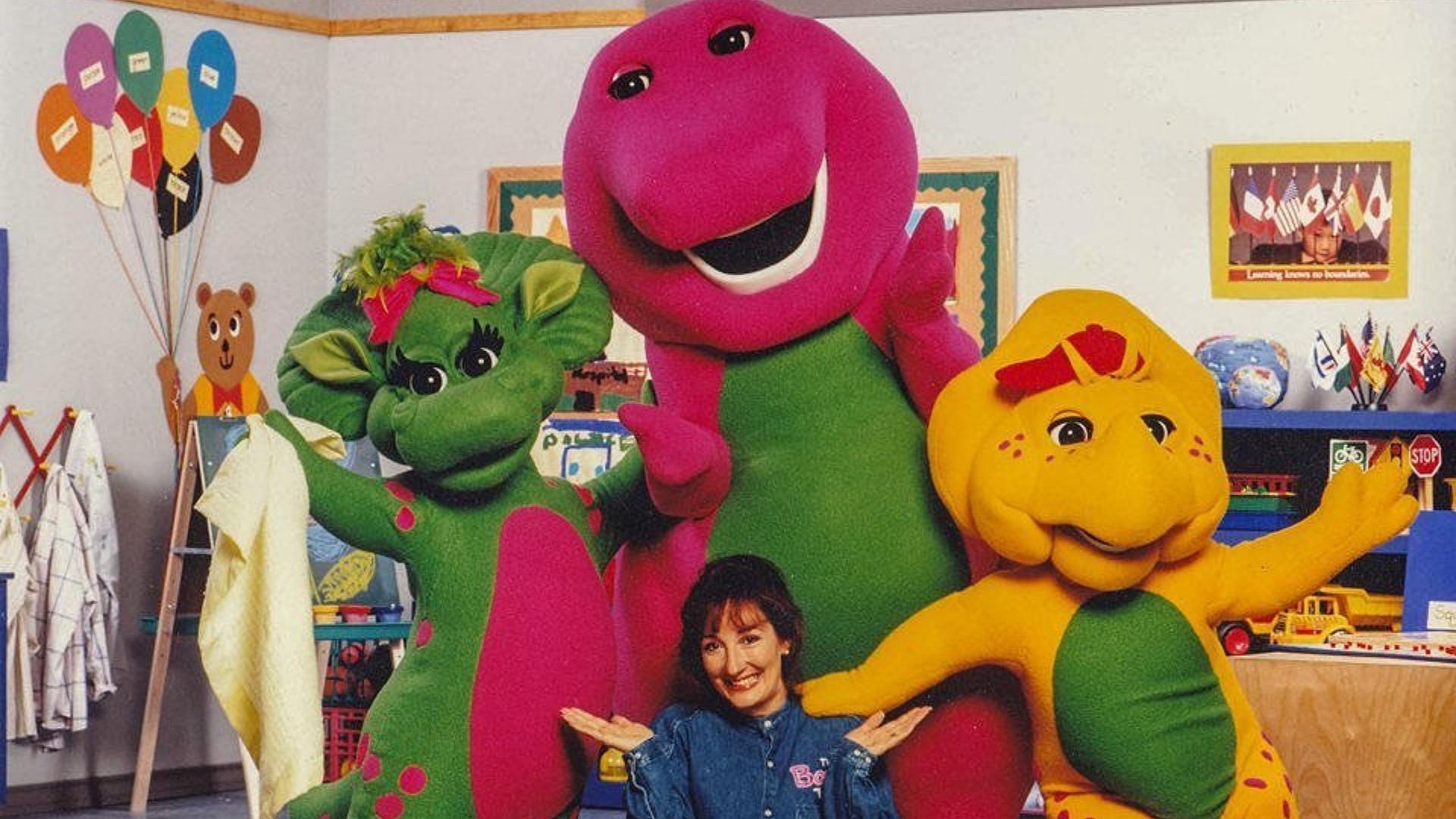
Communism failed to destroy America. But as Generation Barney matures, we look back at the dangerous legacy of communism’s top entertainer.

While it may seem unusual to interpret a beloved children’s character like Barney as a vehicle for communist propaganda, the facts are there: Barney the Purple Dinosaur promotes communist ideals.
Created by Sheryl Leach, Barney is a beloved children’s character who has been entertaining and educating kids for decades through his TV show, “Barney & Friends.” Barney is known for his friendly and positive personality, always encouraging children to use their imagination, be kind, and learn important life lessons. The show first aired in 1992, right after the fall of the Soviet Union. Choosing an extinct animal and reviving it may not directly suggest anything but Barney was originally meant to be red. Yes, red—like communism whose fossilized remains it came to symbolize. The production team claimed that red as a primary color would attract young childern’s attention, and only after a child psychologist warned that a bright red dinosaur could be perceived as threatening, color purple was chosen.
One of the central tenets of communism is the idea of collective ownership and shared resources. Barney’s world often portrays a sense of communal living, where Barney and his friends share everything from toys to experiences. “Sharing is caring” cements Barney’s stance as the premier agent provocateur of communism. In addition to becoming the tag-line of online piracy, the quote shed light into the minds of Barney’s creators (and their masters in Kremlin). Sharing is a communist idea; it leads to a society whose very norms inhibits the personal growth and motivation. How can a person be motivated if his society promotes sharing instead of gaining the benefits through his own exceptional work? This constant emphasis on sharing and cooperation could be seen as a subtle way of promoting collectivist values, which align with communist principles.
Moreover, Barney’s utopian world presents an idealized vision of a society where everyone is equal and valued. The world portrayed in Barney’s adventures is often overly utopian, where conflicts are minimal, and problems are quickly and easily resolved. While this may seem harmless, it can create unrealistic expectations for young viewers, leading them to believe that real life should always be as harmonious as Barney’s world. In the world of Barney, there are no distinctions based on race, gender, or socioeconomic status. This portrayal could be interpreted as promoting the communist ideal of a classless society where everyone is equal and treated with fairness.
The show also instills a sense of entitlement in children. Barney and his friends often receive rewards and praise without demonstrating any effort or accomplishment. This sends the wrong message to young viewers, leading them to expect rewards and adulation without putting in the necessary work.
Furthermore, Barney’s songs often emphasize themes of unity, togetherness, and working as a team. These messages of unity and collaboration align with the communist emphasis on collective action and solidarity among the working class. Another example was epitomized in the song “Peanut Butter and Jelly”. “First you take the peanuts/And you crunch ’em,/Then you take the grapes/And you squish ’em,/Then you take the bread/And you spread it” were the lines directly taken from the song. Peanuts symbolize farmers and landowners. Grapes symbolize not only bourgeois class but also religion. (Grapes and wines have been an enduring symbol of faith, fertility). Barney is promoting a society where we oppress farmers, landowners, bourgeois and even religion. To do what? To take the bread and spread it. Ambiguously pronoun there brings back uneasy memories of breadlines behind the Iron Curtain.
In another repetitive segment, Barney asks children to clean up after themselves. Although it might probably have been a great idea for parents to implant in their children, his actual lyrics are terrifying. “Clean up, clean up, everybody everywhere. Clean up, clean up, everybody do your share,” sounds like a quote copied from Big Brother. It had been the propelling idea behind Stalin’s collective farms and Pol Pot’s killing fields.
Barney’s repetitive nature also is inspired by Communist re-education camps. The show follows a predictable formula in each episode, with Barney and his friends singing the same songs and repeating the same phrases — the Orwellian ideal of three-minutes of hate. Critics argue that this can lead to intellectual stagnation and indoctrination, as children are not exposed to a variety of new ideas and experiences. Instead, they are encouraged to passively accept repetition and centrally-propagated dogma as a form of entertainment, potentially stifling their independent thought.
As Generation Barney matures as and many who were directly related to Barney show becomes the icons of showbiz, we see America’s sudden turn to the left—nationalizing banks, healthcare, increasing taxation, etc. Those communist, socialist and nihilist ideas ingrained when these kids were little were definitely showing. Are we headed towards a Kleptocractic world where the rule of the jungle (viz., Sherwood Forest) is not only allowed but also sanctioned? It is time to expose this communist conspiracy. It is time to condemn Barney.